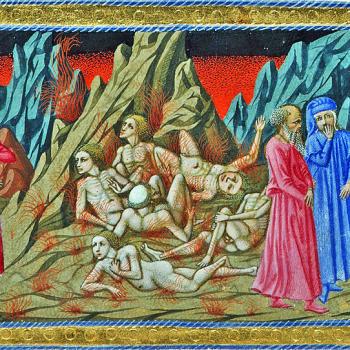Silver next learned from Sister Lamborn, then serving in Marseille, that he, Tucker, Wakeham, and Jordan, the four Paris confederates who had served as traveling elders, stood accused of undermining the mission. Yet Silver had not perceived their efforts as a conspiracy, feeling rather that, "we were united only in certain beliefs and in our hope for the future" (1961, 13). The question of whether a conspiracy existed or not would become a key point of misunderstanding between Church authorities and missionary dissidents in the days to follow.
Another key question that all French missionaries would soon confront was enunciated by Silver's companion, Gary Barnett, the Saturday evening in Marseille prior to their departure for London. Abruptly he queried Silver, "Brother, I want to ask you a question. Do you believe David O. McKay is a prophet?" Silver temporized but eventually admitted his disbelief. They then had a long talk and went to bed. Neither could sleep. After about an hour of wakeful silence, Barnett told Silver that he simply could not accept what Silver had told him.
The next day was a fast Sunday, and all the missionaries in the district gathered for a testimony meeting. Silver noted that missionaries previously in sympathy with his beliefs now turned their backs on him. He labeled their testimonies that day "parrot-like in their repetition." That night the missionaries departed en masse for London.
Daniel Jordan, after serving as a traveling elder, had next been assigned to Bordeaux as the Bordeaux District President, replacing Don Norton, who would be leaving the mission field. The other senior companion in Bordeaux was Neil Poulsen who also shared the dissidents' concerns that the elders' preaching was not decisive or visionary and that early Church doctrines had been cast aside without the Lord's approval. Neil had been David Shore's last junior companion before Shore was released from his mission.
The extremist Jordan was, as usual, humorless and intense. While he spoke of how fortunate they were to be elders in a mission marked to lead out in the great work of the Lord, Jordan's tactics as the new district president were abrupt and disquieting. As Norton packed to leave, Jordan and Norton's former junior companion, David Ririe, went out to work. Ririe returned disconsolate. He explained in tears that Jordan had cut off all their contacts because they would not agree to be baptized in two weeks and that Jordan claimed he did so on the basis of revelation. The unhappy Ririe was soon transferred and William Turner appointed junior companion to Jordan.
As for J. Bruce Wakeham from Tucker's Pasadena stake, after serving as a traveler, he was appointed the district president of Strasbourg, which included the city of Nancy. Loftin Harvey arrived in Nancy from Mulhouse in late August and found the branch in an uproar following one of Wakeham's visits. While Wakeham was there a local leader claimed he saw angels during the confirmation ceremony of a woman who claimed to be a visionary. This claim riled a faction in the branch that did not like the woman. Wakeham, however, had seconded the local leader's statement to the conternation of this faction. Wakeham later confided to Harvey that he had confirmed the statement only to support the leader and not because he could actually confirm the presence of angels. Harvey was dismayed to learn of this deception.
Wakeham's teachings were an additional source of unrest among the missionaries. He instructed them in unorthodox doctrines such as conscientious objection, the united order, and the "new" form of spirituality. Harvey did not agree with Wakeham's teachings. However, although he objected to these odd doctrines and argued with one of the elders in Nancy, probably one of the Tucker faction, about the Adam-God theory and conscientious objection, Harvey had not yet made a connection between these incidents and the Adam-God argument in Marseilles between Elders Johnson and Cheney. He mistakenly viewed them as isolated outcroppings of heresy rather than evidence of a larger groundswell.
Read the conclusion to The Trial here.
Kahlile Mehr is a professional librarian living in Centerville, Utah, with his wife, Marolyn Price Mehr, and their five children. He holds an M.S. in history and has published before in Dialogue, the Ensign, and the Journal of Mormon History.




